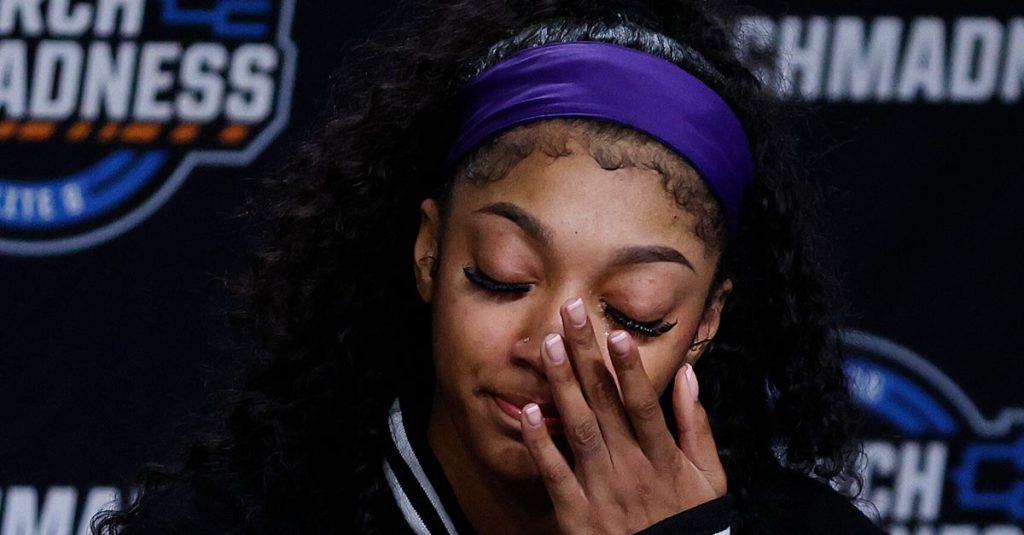LSU star forward Angel Reese recently opened up about the online abuse and attacks she has faced since rising to stardom in the past year. During a press conference following a loss to the Iowa Hawkeyes, Reese tearfully discussed the various threats and criticisms she has received, including death threats, sexualization, and harassment. Despite these challenges, she expressed gratitude for her supportive teammates and family. Reese emphasized that while she tries to stay strong, it has been difficult to find peace since achieving success on the court.
Teammates Flau’jae Johnson and Hailey Van Lith also spoke out in support of Reese, praising her leadership and resilience in the face of intense scrutiny. They condemned the media’s vilification of Reese and called attention to the unfair treatment she has received based on her race and gender. Last year, Reese helped lead the Tigers to victory in the NCAA Division 1 women’s basketball tournament, earning the title of most outstanding player. However, her behavior on the court, including trash-talking towards opponents, has drawn criticism from some observers.
Following the championship game, Reese was criticized for making hand gestures towards rival players, including a gesture popularized by wrestler John Cena. Some commentators and sports figures labeled Reese as “classless” and made derogatory remarks about her conduct. However, many have pointed out that male and white female players are often treated differently for similar behavior. For example, Iowa’s Caitlin Clark, who is white, received far less backlash for similar actions. Clark herself defended Reese, stating that she did not deserve the harsh criticism she received.
The controversy surrounding Reese’s behavior highlights deeper issues of racism, sexism, and double standards within the sports world. Media coverage and public perception of Black female athletes like Reese are often influenced by harmful stereotypes and biases. Journalists and commentators have a responsibility to report on and critique athletes’ actions in a fair and unbiased manner. The use of derogatory language and negative stereotypes only perpetuates harmful attitudes towards marginalized groups in sports.
In response to criticism of their coverage, some journalists have issued apologies and acknowledged the problematic nature of their comments. Los Angeles Times columnist Ben Bolch, in particular, faced backlash for referring to the LSU Tigers as “dirty debutantes” and “villains.” LSU coach Kim Mulkey denounced these remarks and called for fair treatment of all athletes regardless of race or gender. The incident has sparked a broader conversation about the importance of promoting equity and inclusivity in sports journalism and media coverage.
It is crucial for athletes like Angel Reese to be supported and protected from online abuse and discrimination. Their success and achievements should be celebrated without prejudice or bias. By amplifying the voices and experiences of marginalized athletes, we can work towards creating a more inclusive and respectful sports culture for all individuals. Reese’s courage in speaking out about her struggles sends a powerful message about the need to stand up against injustice and push for greater equality in sports and beyond.


